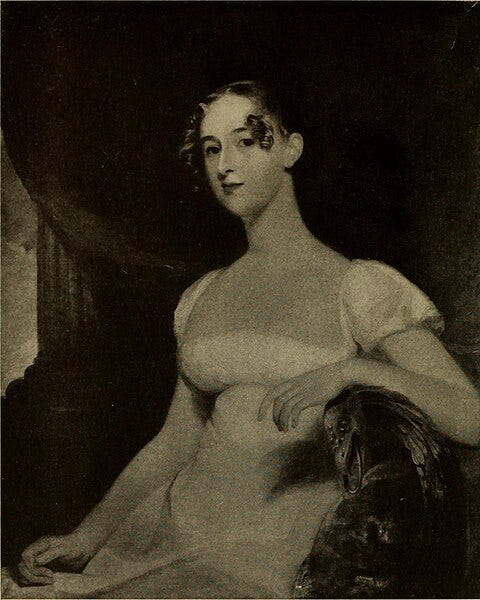I was in the hot tub at the YMCA. My wife was there with me. We wanted to relax and talk about our day—but a couple of studs had other ideas.
One of them was 87 years old. I know his age because he’s in the hot tub every I’m at the YMCA. If a stud wants to live a long time he’s got to be hot.
Someone told me, one time when I was there, that this guy was 87. Maybe now he’s 88.
When we’re both there at the same time he stares at me constantly. It’s what a stud does, when he sees a lesser stud. He’s got to stare him down, put him in his place. Sometimes you’ve got to show a guy what’s what.
This time, though, he started talking to my wife, who is also known as Incrediwife. He asked how many kids she has.
While he was busy taking my woman away from me—and doing it effortlessly—another man turned to me and struck up a conversation.
It was like a game of cat-and-mouse in there. And I was the mouse.
This other man wasn’t 87, he was 45 or 40, and for probably ten minutes he explained his life plans to me in great detail. I didn’t ask about his plans for life. I asked him no questions at all.

He explained that he works for immigration enforcement. He has over a decade of experience there, and soon he will attend law school. His ultimate goal is to be a federal judge, which is why the tattoos he has are not on his neck. You can’t have a judge with neck tattoos. Right? He will be a federal bankruptcy judge, and by the time he gets to that stage in his plans he will have been with immigration enforcement long enough to have earned a pension. He will also own two businesses. He has already started one of them. He’ll be able to retire, eventually, something like four times. Four times! But then, he’ll probably only retire three times, because why would would any sane person retire from the federal judiciary? Why not keep being a judge, when you’ve got a whole staff to do most of the work for you?
A few days ago, I started writing about this hot tub double-stud man and wife experience, where I learned so much about that guy I’ll never see again and didn’t want to know anything about. But then I took a breath and thought, Okay, Rob. Calm down. Maybe you’re the one who’s the problem here. Maybe you’re too sensitive to how men talk to you. Maybe the way they seem to only ever want to deliver monologues about their plans and lives, rather than have conversations, is due to your failure to be a tub stud. Maybe you should man up. Have you considered that, dear Robert?
I had not considered that.
I was going to press delete on this whole freaking newsletter-in-progress, but then, a day later, my daughter wanted me to take her and her friend back to the scene of the crime—not to the hot tub, but to the pool that the hot tub is next to. And I knew when I agreed to take her there that I’d end up in that boiling tub. I knew what would happen once I was in it.
It took no more than one minute in that hot tub for another old man to strike up a so-called conversation.

This encounter actually went okay for a minute. The guy told me he used to come to the YMCA five times a week. But he had been coming in less often, recently, because he had to have a couple of surgeries.
I was like, Here we go again.
But then something unexpected happened. He asked me a question. He asked what I did for a living.
I knew my answer wouldn’t satisfy this man. No one over the age of 50 is ever glad to find out about my life.
I said some version of, “I used to have a career, but I gave it up and have been freelancing while Incrediwife is the breadwinner and I do freelance work and raise the kids—but then the kids don’t need all that much attention anymore, so I’d like to restart full-time work again in some capacity if the kids will let me”—which I’m not sure they will, you know? Because someone has to be the one to drive kids to swimming pools and then to lunch at fast food restaurants. Sometimes you have to do that at eleven a.m. on a Friday.
The man endured my fifteen-second explanation, and I was starting to think maybe this was it. Maybe I had found a man who knows how to have a conversation, in which two people ask each other questions, in which there is mutual sharing and listening.
No suck luck! After my quarter-minute filibuster, he spent ten minutes talking my ear off about his career. It took him all over the world! He was a missionary of some kind. There’s not a state in the union he hasn’t been to, and he’s lived all over the world.
More recently, though, this man’s wife wrote a book. He gave her some criticism, when she asked for it, and that was a bad idea, because then he had to help her out by writing two chapters of the book. And he didn’t get any credit for all of his work. You know how it is.
He said he completely changed the state of things for homeless people in Seattle, and added that they’ve let the situation get completely out of hand. They let guys pitch tents in the streets.
The best part of the whole situation at the hot tub is that because we’re at a swimming pool there is always classic rock playing in the background. There must be a law that says that every swimming pool must have a boombox nearby, playing a local radio station.
When the guy was telling me about homeless guys in Seattle, in the background I could hear “Under Pressure” by Queen, ft. David Bowie.
My friends—and I’m talking to my real friends, not my tub friends; I’m talking to my newsletter audience—I am at a loss. I am a man who does not understand men. I don’t know why they are the way they are. I don’t know why they can’t interact the way people used to. I’m tempted to blame the eclipse of telephone conversations. I think when you talked to distant people on the phone it was good practice for when you were face-to-face with someone else.
I kind of don’t want to go outside anymore, and I’m relieved that at the time I’m writing this a snowstorm is on its way that will trap all men in their houses, where they can’t get to me for at least a day or so.
I have, of course, talked to women before who are bad at conversations. They exist.

Women can be blowhards. Women can be arrogant. Some are more interested in verbalizing their plans and offering up their accomplishments in great detail than they are in true colloquy.
But, I mean, come on. Women are mostly not like that. Lots of men are like that.
I’m like that, myself, when I’m writing these newsletters, and when I’m writing other things. I go on and on about whatever, as if someone cares, and I’m not even sure who is listening. But in my defense, I don’t corner people and force them to read my newsletter. Not at the YMCA, anyway.
Maybe all those guys from the pool should start their own newsletters, and get their monologues out that way.
Or, I don’t know: maybe I’ll make a TV show about this. It will be a sitcom, set in a hot tub at a YMCA in Kansas City. All of the actors will be lathered studs. There will be a microphone and a PA in the hot tub. The studs will take turns addressing the others at high volume, telling one another their plans and offering their life stories to whoever doesn’t want to listen. They will harangue everyone they see and go splish splash.
My making a TV show, I should mention, is not an idle threat.
I have a prediction to make: soon, creeps like me will have the power to make their own TV shows, without having to leave the house, and without having to work with or get approval from other people.
I love when tech people and CEOs tell us what it will be like to watch television in the near future, when generative artificial intelligence has gotten so advanced it can create new shows out of nothing for your viewing pleasure. Tell the machine you want to see a show about the mafia, they say, and it will make one for you on the spot. It can even make you the star of the show! You can sit back and watch yourself busting the balls of your oldest pals at the delicatessen where you like to hang out between crime murders. You can see yourself kiss a beautiful man or woman. Sit back and let the computer make the image of you do whatever you want it to.
I myself don’t want to watch TV shows in which I am the star. I don’t like what I look like as much as I like what other people look like. I don’t want to see myself on a screen any more than I have to, and I suspect plenty of other people feel the same way.
But it is wonderful to me, that this is what tech CEOs think people want, that we are dying to see ourselves on our televisions. They think everyone else is the same kind of egomaniac they are, when in fact we’re all egomaniacs in different ways, most of which are less overt than that.
I had a vision, recently, of what the age of AI-generated television shows might actually be like.
Last year, like that hunk I met at the pool, I considered going to law school. I looked at my life and saw that while I do have work I don’t really have a career. I thought the answer to that lack of a career might be to pursue a third post-graduate degree. I’ve got an MA, I’ve got a PhD. Why not a JD? What could go wrong?
I made serious inquiries, but I didn’t go through with it. I think I am better off. I will go to the crematorium, when it’s my time, never having been a lawyer.
But in the midst of all of that, I had an idea for a TV show, in which a woman—why a woman? because women are funny—finds herself lost in middle age. Unlike me, she doesn’t have kids. Like me, she has no real career. So as a last resort, she takes the LSAT, gets some letters of recommendation, and—can you believe it?—gets into a great law school. Her friends tell her she should absolutely not do that. They know her well enough to know she would make a terrible lawyer. She is in enough student loan debt as it is. This is a bad idea!
But what this woman knows, and only she alone knows it, is that if she goes to law school she will be the star of a television show.
The show will be much like Fleabag, where you have the star breaking the fourth wall, treating the viewer like a confidante. The protagonist of this show, on her way into law school, has this feeling, that her show will begin as soon as she starts attending classes.
She hasn’t told anyone this will take place, because she doesn’t want to jinx it. And how does she know it will happen? She cannot say. She just knows.
And, indeed, the first episode begins on her first day of law school. A professor stands at the front of a lecture hall, in a blazer, or whatever, and tells everyone how hard law school will be. It’s like that famous early scene from The Paper Chase.
As the man lectures, the camera zooms in on this woman in the front row.
She glances at the camera. She glances again.
She smiles, and appears to grow excited.
She walks out of the lecture. The professor is startled and clearly annoyed. He doesn’t see whatever it is she can see. No one can, except her.
The camera follows her into the hall. As soon as the door shuts behind her, she says, “Finally! You’re here. I knew you’d come. Oh, this is exciting. Everyone said I was crazy to go to law school, but I knew it was the only way to get you here. All I had to do was start law school, and the show would begin. And now look. I can’t believe it! It’s really happening.”
Up to this point, before the first episode’s opening scene, this woman studied hard for the LSAT, and did everything else she had to do to get to where she is. Now that day one of law school has arrived, and her TV show has begun, her behavior changes. Other students she met at orientation are confused, because now for some reason she acts like she’s on television, cracking wise and being kind of mean, for the sake of entertainment, the way characters are on sitcoms.
At the end of this first episode, something bad happens, something that raises the dramatic stakes. She takes it to mean that if she wants her show to succeed, if she wants to sustain strong ratings, she has to act out. She has to do things that make no sense, so that the show doesn’t try to improve ratings by making more bad things happen in her life. As long as she’s the one doing all of the bad stuff, she will be in control.
Between episodes, she’s working hard, she’s being a good law student—but as soon as the audience appears again, to whom she speaks whenever she’s alone, she reverts to acting like a lunatic. She is always just barely making it, in school, as her behavior puts her on the bad side of every professor and most of the other students.
Her oldest friends are convinced she has completely lost her mind, but all the while, every step of the way, she is vindicated. She hasn’t lost her mind. We know, and she knows, that she is correct. She is indeed on television. The show is real; we, the viewers, are watching it. The show’s protagonist seems utterly delusional, within the context of the show, but to those of us who are watching, what she does and says looks and sounds more or less exactly right.
Is this a good idea for a TV show? Of course it’s not a good idea for a TV show. It sucks, in fact. I don’t think I would want to watch it at all.
If I did believe in it, if I wanted to make it a real TV show, I could write a teleplay for a pilot, and then I guess I would see if I could get an agent to represent it? I don’t know what you even do with a script for a TV show.
And I don’t really care. Just as in this life I will not defend clients in courtrooms, I will not entertain the masses through their televisions.
Maybe instead I’ll write a short story in which this fictional show I made up is playing out in the background. The story will take place in the course of this fictional season of television.
I will probably do exactly that, actually. As soon as I have some time to spare, I’ll get started. That may never happen.
But let’s say generative AI continues to get better. Let’s say it reaches the point where I can write a TV show script and upload it to a website, where in minutes it gets transformed into a half-hour TV pilot. I could select what actors I want; I could design the set myself, or use a pre-rendered set. I could make the show into anything I wanted, and I could do it all by myself, without having to collaborate with people, without having to get producers onboard with my vision, or whatever.
I will not be surprised if that technology never exists. It sounds a little farfetched. But I wouldn’t have believed someone if they told me, fifteen years ago, that someday I would write song lyrics and have a website turn them into a fairly convincing facsimile of a song, with sounds like the sounds of instruments being played, and voices that sound real as well. And that is a reality, one I have mixed feelings about, even while I have used it to write my own theme song.
I don’t think I would actually go through with writing the teleplay I have described. It would take too long. I would rather write something else.
And while I am disappointed in plenty of TV shows that get made these days, and I know the process that takes a TV show idea from original concept to finished product is hardly perfect or efficient, or whatever, I know there are people out there making shows who are good at what they do. They have experience writing jokes for TV; they are trained actors; they know how to make costumes look good; et cetera. An idea for a TV show, and a teleplay for a pilot, has to leap over many necessary hurdles, and garner a substantial amount of support, as it makes its way to our TV screens. There are reasons why mine wouldn’t get far.
But with generative AI of the future, I wouldn’t be held back by all of that. The gatekeepers would have no say in what I made. I could make my own show with just the artificial intelligence. I wouldn’t need to hire actors, build sets, or do whatever else it takes to create a show. I wouldn’t have to get a network to pick it up. I could make it available to people all on my own. I could post it online. Everyone could watch it on a phone or a computer screen.
Maybe my show about the unhinged law student would only get a hundred viewers—but hey, a hundred is kind of a lot, when you think about it. Right? So I might make more episodes, after that first one. Maybe I would garner more of a following. A few more people might watch with every installment, and before long I might have my own modest viewership. I wouldn’t make enough money from this to sustain myself, but some people would pay to see these episodes, or donate money to support my creative endeavors.
Meanwhile, the time my audience spends watching my show is time they don’t spend watching other shows, the ones that take a lot of money to make, like Black Doves, which I enjoyed quite a lot recently.
If I peeled a few hundred viewing hours per month from the total hours people spend watching television, it wouldn’t make so much as a dent in a cable channel’s viewership. But if there were hundreds or thousands of people like me, making their own shows using AI, that really could undermine the networks and streaming services. It could change the television landscape in a way that could not be recovered from.
Maybe generative AI will never be good enough to turn a script into a watchable 30-minute sitcom, complete with laugh tracks. But if it is—or if it even comes close—it’s not hard for me to imagine a television transformation like this taking place.
It’s what already happened in publishing. You don’t have to go through a literary agent, an editor, and a publisher, in order to get your novel into the world anymore. You never really did; self-publishing was always an option. Walt Whitman did it. So did William Blake. But it’s easier now to self-publish a book than it ever was. You can get it in print within days; you can make your book manuscript into an e-book in seconds, one that people can access all over the world. Authors write and publish whole novel series without ever having to submit their work for editorial oversight. The big bucks are still with the major publishers, but if that’s not what you’re after, primarily, then why bother with those guys?
And I don’t mean to suggest this publishing transformation is a bad thing. I have no objections to self-publishing. If I had enough money to make a self-published book look good and really publicize it, I might do it myself.
And while I have, in recent paragraphs, praised the people who make our television shows, I also want to complain about several shows I watched in 2024.
The most recent one is The Day of the Jackal. An earlier one was that one with Juliette Binoche playing Coco Chanel and Ben Mendelsohn playing Coco Versace, or whoever he was supposed to be in that thing. The whole show was made for the sake of brand recognition, and I can’t even remember what the brand was. It was a multi-million-dollar advertisement for whoever that designer was, and the company he founded, and it was as utterly ineffective as it could have been. I know that the character he played was the founder of one of the big perfume and clothing designers, but when I try to think of what it was I draw a blank.
Shoot. That’s right. It was Dior. Days after writing the above paragraph, I remembered it was Dior.
But listen: I spent hours watching a show about Christian Dior, and I still don’t care about Dior. When I walk past the Dior perfume station at Dillard’s, and I smell something by Dior, I don’t recall the heartbreaking experience Christian Dior had saving his sister’s life. I just want to get out of there.
I also watched most of Get Millie Black, which is well-made but joyless. There’s the new Dune series, and it has some great actors in it, but it’s unbelievably dull. There was Ripley, which dragged on and on, and there were several others I’m not thinking of, because they aren’t memorable.
These TV shows would have been much better off as movies. There was no reason for the story of Coco and Coco to take more than two hours. It would have been a boring movie, but watching it would have been a mercifully brief experience.
And yes, I know, I didn’t have to watch any of this stuff. I could have gone into another room and read my book while these shows were on. But what can I say? I like watching shows with Incrediwife. It’s something we do together. We don’t ever have enough time to watch a whole movie—I don’t think we’ve have two consecutive hours in which to do anything but work for the last twelve years—but we can watch a fifty-minute show, albeit with frequent interruptions.
The Day of the Jackal was especially flawed in this way. It was so boring! It took ten episodes to tell a story that fit into a movie that’s two-and-a-half hours long in 1973. What did they fill all that extra time with? Mostly Ursula Corbero standing alone in a room, crying into a phone. Anyone who has seen the Spanish series La Casa de Papel knows she can do much more, like make fun of people who do origami:
Is she the greatest actor I’ve ever seen? No, but she’s a fun one to watch when she has something to do.
I don’t want to be bored in 2025.
And I want to make sure I don’t forget in 2025 that all social media posts are forms of advertising.
I don’t mean that there are advertisers on every platform, with companies spreading the good news of the products they manufacture and distribute. I mean that sites and apps like Instagram turn us all into advertisers. When my old friend from way back posts a tantalizing image of the beer he’s just poured into a glass and is about to enjoy, he is essentially posting a beer advertisement. I know that’s not what he intends; Lagunitas Brewing isn’t paying him to post that image. But the platform coopts whatever he puts there. It grinds our interactions up in the workings of the marketplace.
When another friend posts the results of her workout routine, demonstrating the results of the hard work she’s put in at the gym in 2024, I know she isn’t shilling for the gyms in my area, or for exercise equipment. She only rightly feels like she’s accomplished something, and wants to tell her friends.
But I want to be mindful from now on about what it is I’m looking at when I use social media, and how it warps my interactions with others and the ways we perceive one another.
And I know this is all old news. But I find it’s easy to forget this sort of thing.












Share this post